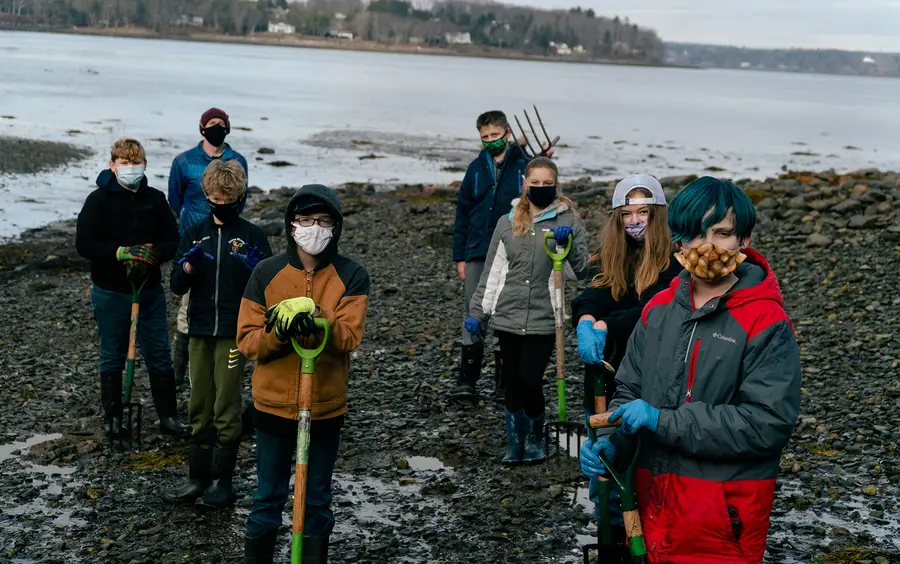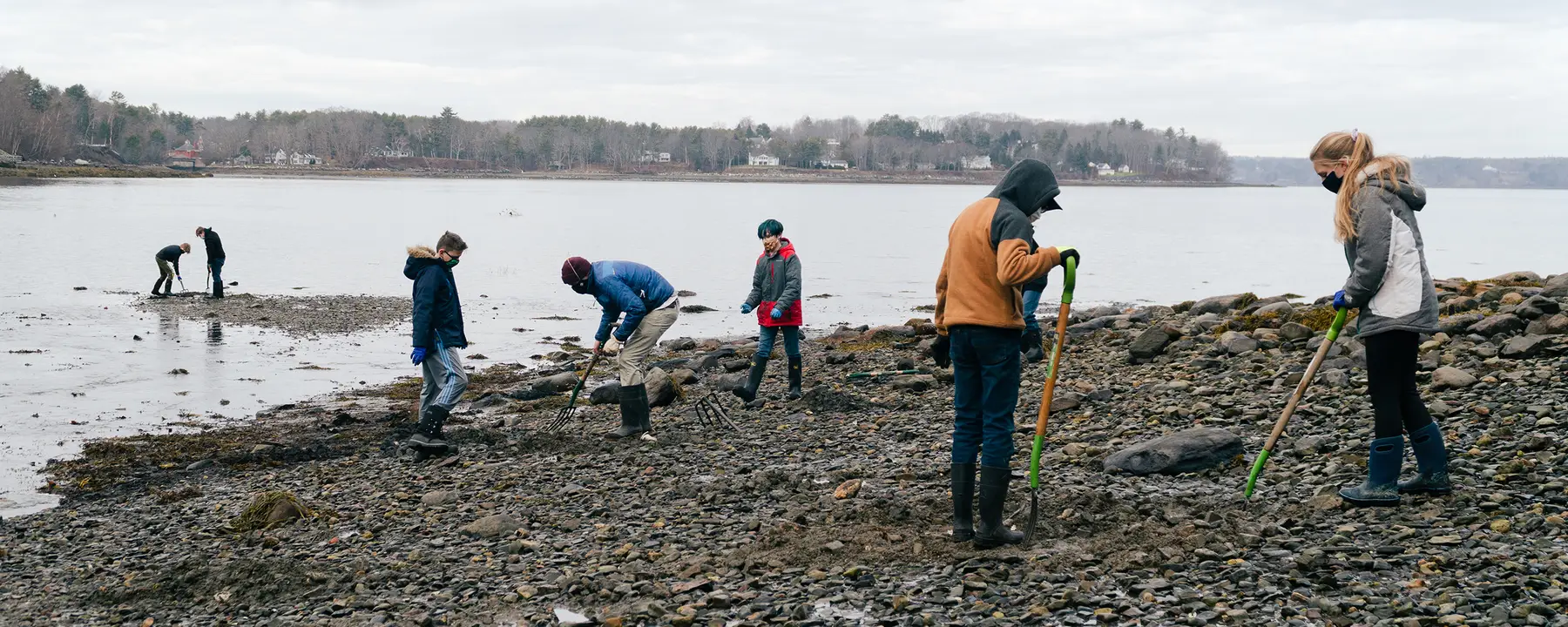Helping students in coastal communities investigate environmental issues and connect with others during a challenging time
It was the right year to be involved in citizen science. Enter WeatherBlur.
Amid the COVID-19 pandemic, American families turned their houses into classrooms. The pivot was sudden and sometimes difficult. One of the positive side effects of going to school at home, for many children, was a chance to focus more attention on nature – not faraway wild places, but the kind of small wonders that happen closer to home.
And in several corners of the country, teachers working with a program created by the Maine Mathematics and Science Alliance (MMSA) and supported by RTI International were able to help their students explore these small wonders and learn about local environmental issues. As the year progressed, as some schools stayed remote and others returned to various forms of in-person learning, they took action to help their communities.
What is WeatherBlur?
WeatherBlur is a citizen science program for schools that emphasizes student inquiry and hands-on science . Created by the Maine Mathematics and Science Alliance and initially funded by the National Science Foundation, it partners teachers and students with scientists to launch scientific investigations of local problems, often focused on water, climate change, and natural resources.
RTI has been a partner for WeatherBlur since 2018, providing technical assistance for teacher professional development and helping expand the program from coastal Maine communities to schools on the Gulf Coast of Mississippi and Alabama. Over the course of RTI’s involvement, 15 RTI scientists have advised students and teachers on their citizen science projects. Since inception in 2011, WeatherBlur has engaged more than 1360 students and 20 scientists in co-creating science investigations and community action projects.
Community-Based Scientific Exploration
Mickie Flores, who teaches science to fifth-, sixth-, and seventh-graders at a small school in coastal Maine, sought out WeatherBlur to broaden the horizons of students in her geographically isolated community. Over the years, her classes have studied climate change and wildlife populations, using the WeatherBlur program to identify environmental issues, practice scientific data collection, and connect with professional scientists. They’ve also communicated their results through writing, visual and performing arts, and presentations to civic leaders.
This year, Flores’ classes focused on measuring the local bird population. This activity worked well during both remote learning and in-person excursions to their school’s nature trail. Thanks to WeatherBlur, the students went beyond simple birdwatching, learning to create graphs and analyze their data.
“What WeatherBlur does is turn us into authentic scientists,” Flores said. “It took us all of September and October to really develop a good bird counting protocol.”
In another classroom on a different coast, Erica Wilson’s students have also embarked on WeatherBlur journeys. Wilson, who teaches sixth grade in Mississippi, has used the program in her classroom and also gone through WeatherBlur’s professional development with other teachers.
Wilson’s students chose to investigate microplastics, the tiny traces of synthetic materials that end up in the environment and find their way into water and living things. Commercial fishing is a mainstay in the local economy, so pollution from microplastics is directly relevant to the students’ lives.
After measuring levels of microplastics in their own tap water and working with researchers from Mississippi State University to analyze their data, the students felt motivated to act. They launched a recycling program and aimed to collect 500 plastic bottles per week.
“Our research has made students more environmentally aware of their surroundings and how to be good citizens when it comes to recycling,” she said. “Without WeatherBlur, I don’t know if it would have run as smoothly as it did.”
The recycling project earned local and even international recognition for Wilson’s students. The students earned three badges for their microplastic investigation and recycling action project at the 2021 Virtual GLOBE symposium. They were also invited to speak at the 2021 conference of the Mississippi Recycling Coalition.

Support for Teachers and Future Scientists
The scientific investigations at the heart of WeatherBlur take place at the grassroots level, among teachers and students. Experts from RTI, MMSA, and other partners support the program and provide outreach that fosters interest in science.
The WeatherBlur website was recently upgraded to be more interactive. One section helps students and teachers clarify their research questions using the SMART framework, which stands for Specific, Measurable, Attainable, Realistic/Relevant, and Timely. Teachers told us the changes helped them take their class projects to a new level.
Also during the 2020-2021 school year, the team facilitated live, virtual conversations with professional scientists. More than 40 classrooms signed up, and students had the chance to ask live questions about careers in science. Engaging with scientists in a variety of ways throughout the program helps students see themselves as future scientists who can have a positive impact on their communities and the world.
The pandemic uncovered a need for engaging, relevant topics compatible with remote learning. WeatherBlur, with its emphasis on rigorous citizen science contributions from across the miles, helped students learn and connect with others during a challenging time. Our experience before, during, and beyond the pandemic shows that WeatherBlur and programs like it can help students use rigorous scientific methods to find and investigate important environmental issues in their communities.
Support for the WeatherBlur program is now expanding to include a stronger focus on computational thinking with new funding from a STEM+C award that MMSA received from the National Science Foundation. RTI looks forward to continued partnership with MMSA where the hope and expectation is that for many of these students, the taste of citizen science that WeatherBlur brings will spark a lifetime of pursuing their curiosity and applying science to improve their communities.
- National Academies of Science, Engineering, and Medicine (Gulf Research Program)
- Maine Mathematics and Science Alliance
- National Oceanic and Atmospheric Administration (NOAA)
- Maine Geological Survey
- Bigelow Laboratory for Ocean Sciences
- Mississippi State University

